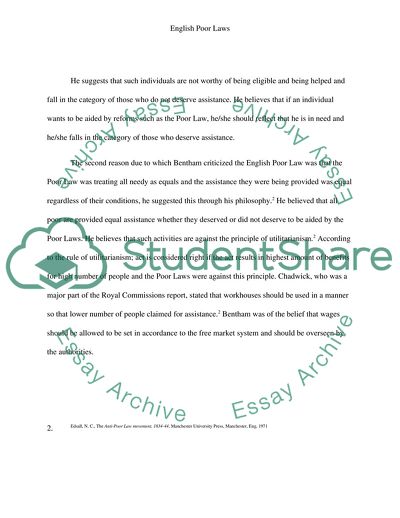Cite this document
(English Poor Law Case Study Example | Topics and Well Written Essays - 1500 words, n.d.)
English Poor Law Case Study Example | Topics and Well Written Essays - 1500 words. https://studentshare.org/sociology/1781471-social-welfare-the-old-and-new-poor-laws-the-social-theories-of-malthus-and-bentham
English Poor Law Case Study Example | Topics and Well Written Essays - 1500 words. https://studentshare.org/sociology/1781471-social-welfare-the-old-and-new-poor-laws-the-social-theories-of-malthus-and-bentham
(English Poor Law Case Study Example | Topics and Well Written Essays - 1500 Words)
English Poor Law Case Study Example | Topics and Well Written Essays - 1500 Words. https://studentshare.org/sociology/1781471-social-welfare-the-old-and-new-poor-laws-the-social-theories-of-malthus-and-bentham.
English Poor Law Case Study Example | Topics and Well Written Essays - 1500 Words. https://studentshare.org/sociology/1781471-social-welfare-the-old-and-new-poor-laws-the-social-theories-of-malthus-and-bentham.
“English Poor Law Case Study Example | Topics and Well Written Essays - 1500 Words”. https://studentshare.org/sociology/1781471-social-welfare-the-old-and-new-poor-laws-the-social-theories-of-malthus-and-bentham.


